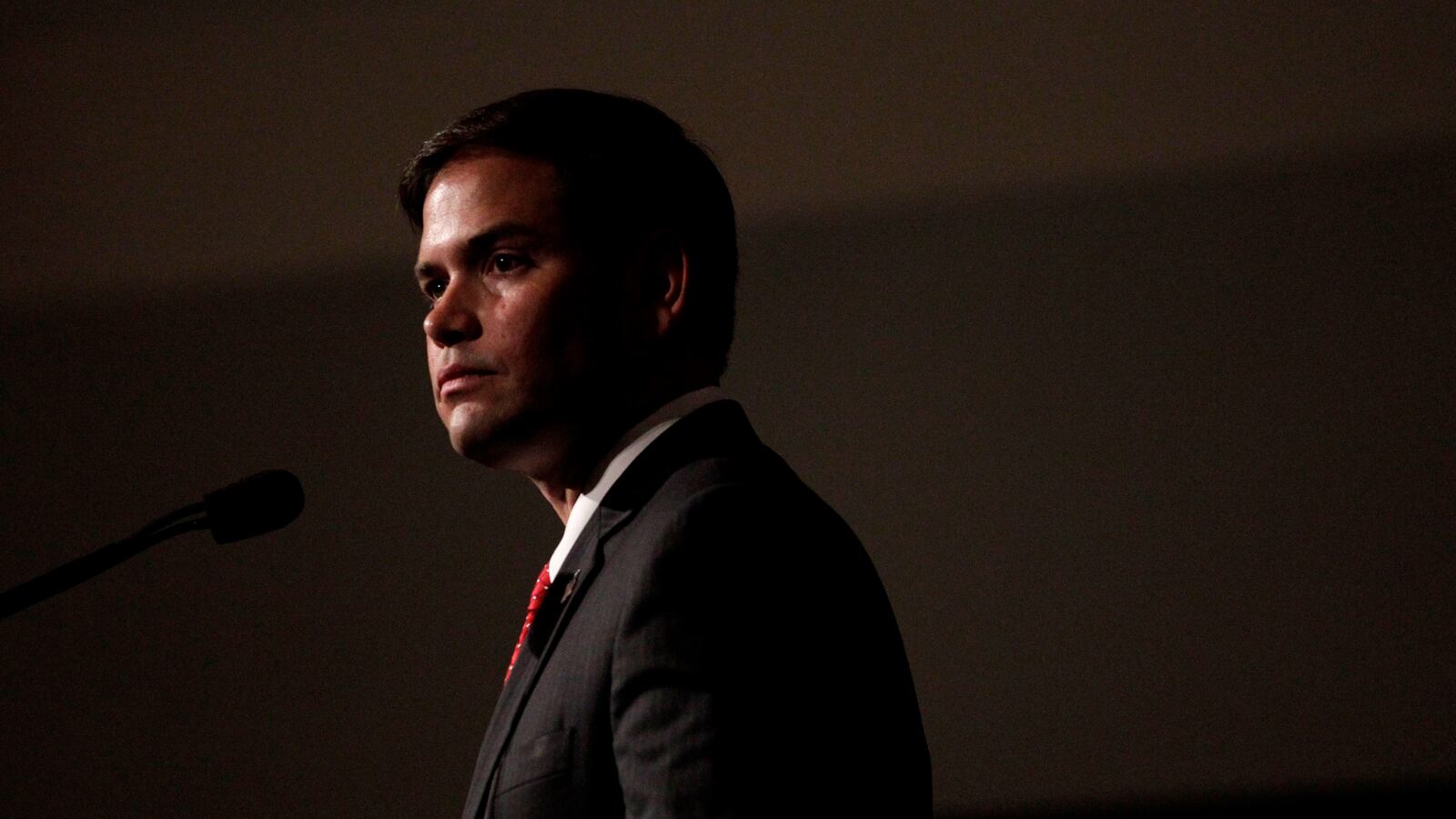In the run up to every State of the Union address, a favorite Beltway parlor game is to obsess over every aspect of the speech: what the president will say, what he should say, what guests he’ll invite, and on and on. It is, if not much ado about nothing, certainly much ado about what is, ultimately, just a political speech.

And after all the anticipation and handicapping and hyperventilating and melodramatic commentary, and after 40 million or so Americans watch as the president delivers it, some poor schmuck from the other team must follow up the grand spectacle with an official response.
This year, that schmuck is Florida senator and 2016 hopeful Marco Rubio.
Oh, sure, giving the SOTU response is supposed to be an honor—an opportunity for one of the opposition’s best and brightest to strut his or her stuff, grab some national notice, and generally wow the masses. Only that almost never happens.
Some years the performance is simply meh (Tim Kaine in ’06, Kathleen Sebelius in ’08, Bob McDonnell in ’10). Now and again, it’s a bona fide disaster. (Bobby Jindal in ’09!) But rarely does it cover the respondent in even short-term glory.
Rep. Paul Ryan’s 2011 offering helped burnish his brainy credentials, which were key to his landing a spot on the 2012 ticket. But even his speech wound up an afterthought thanks to Michele Bachmann’s delivering an “alternative” SOTU response in her capacity as queen of the Tea Party. CNN aired the two responses back-to-back, the late-night comedians naturally spotlighted Bachmann rather than Ryan, and the morning-after buzz was all about the dueling addresses. The Tea Party response seems to have nonetheless become a tradition, with Herman Cain delivering a mostly ignored missive last year and this year Kentucky Sen. Rand Paul is stepping up, which should help muffling, if not muddle, the critique of Rubio.
Even among those whose speeches seem to go well at the time, there have been enough career glitches that political types talk about “the SOTU response curse.” Former N.J. Gov. Christine Todd Whitman (’95 response) is considered a notable victim. Rather than setting the political world aflame post-speech, Whitman became increasingly unpopular within her own state before heading off to a short, bumpy tour as George W. Bush’s EPA chief. Virginia Sen. Jim Webb was also a comer when he delivered the Dems’ response in 2007. Six years later he fled Capitol Hill when his first term ended. Small wonder that, when the Rubio pick was announced, CBS’s Major Garrett tweeted: “SOTU response + Sports Illustrated cover jinx of politics.”
It’s not all superstition. There are concrete downsides to following the president. The most obvious: no matter how charismatic a respondent may be, he or she is not the president. “There’s a tremendous handicap going in,” says veteran political watcher Larry Sabato, head of the University of Virginia’s Center for Politics. “You’re there in the room by yourself ... You don’t have all the pomp and circumstance. You don’t have a made-to-order stand-and-applause crowd and all the symbols of the Republic.”
And venturing something different can backfire. Gov. Bob McDonnell opted to deliver his response on the floor of the Virginia House of Delegates, in front of a friendly audience, with a set-up that mirrored the POTUS’s. The contrast was not flattering, and the desperate staging became a subject of mockery.
Compounding the challenge, by the time the SOTU is over, viewers are past ready to switch back to something they actually enjoy watching. Thus, respondents have 15 minutes tops to get ’er done. Nor are they actually responding to what the president has just said so much as laying out their party’s general vision, which can be hard to make scintillating even when folks haven’t already sat through an hour of speechifying (or, in the case of Bill Clinton’s 2000 stem-winder, an hour and a half).
Then there’s the little matter of expectations. While the bulk of viewers tune out a heartbeat after the POTUS calls on God to bless us (assuming they make it that far), much of the chattering class hovers, drooling, eager to grade the follow-up act. The more promising the respondent, the higher the expectations and the greater the potential for disappointment.
In that department, at least, Rubio may wind up benefitting from the trials and tribulations of his predecessors. “There’s Rubio’s salvation,” chuckles Sabato. “No matter how badly he does he will not do as badly as Bobby Jindal.”






